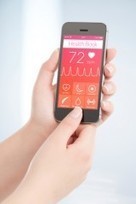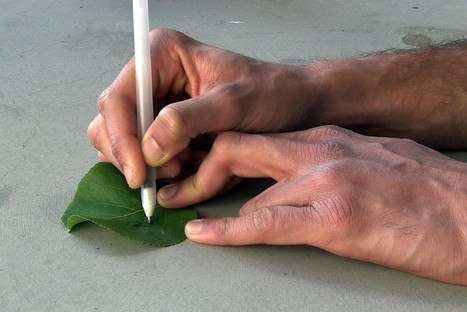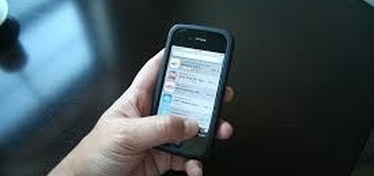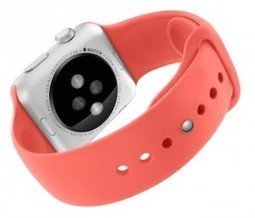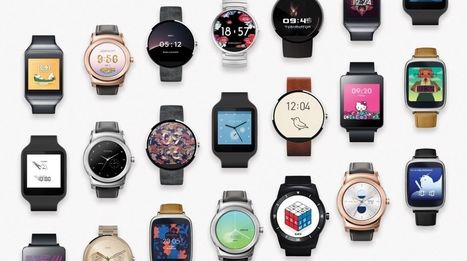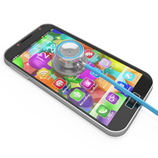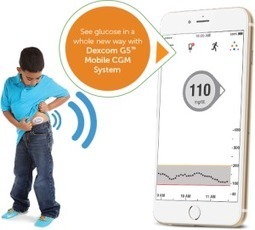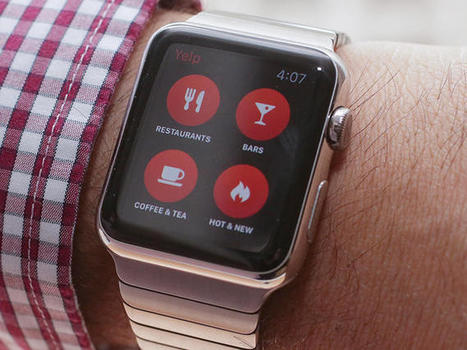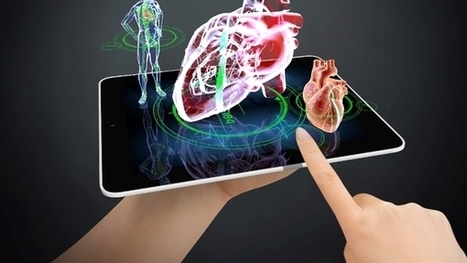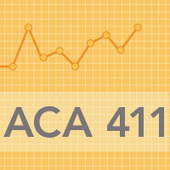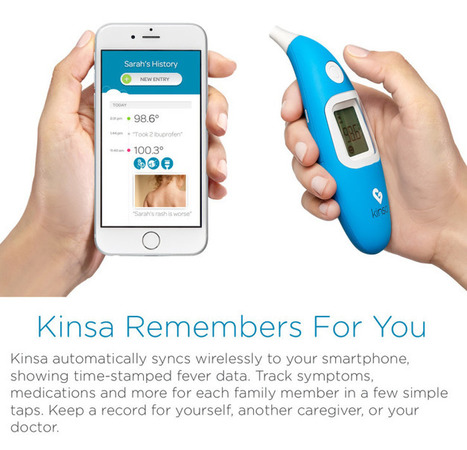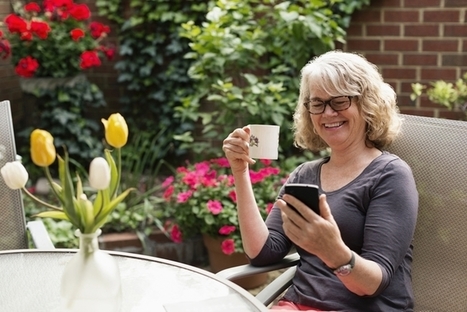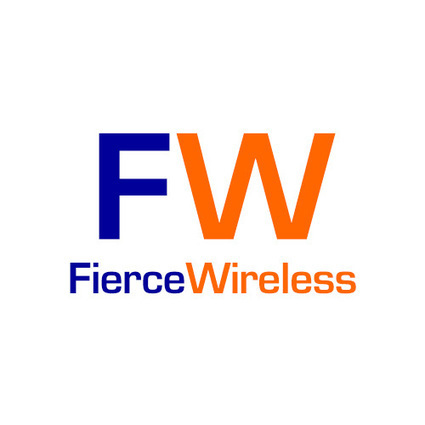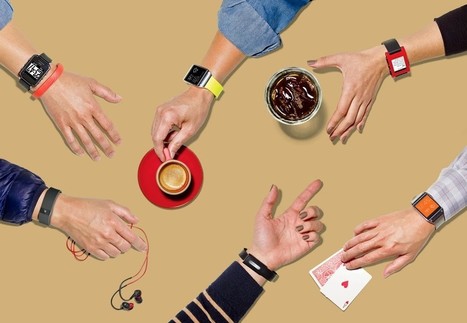 Your new post is loading...
 Your new post is loading...

|
Scooped by
eMedToday
September 15, 2015 1:42 AM
|
The mental health field including psychiatry and psychology could benefit greatly from telehealth technologies and mobile health applications.

|
Scooped by
eMedToday
September 15, 2015 1:27 AM
|
Remote monitoring tools enable providers to track patients’ health and vital signs when they are residing at home.

|
Rescooped by
eMedToday
from Pharmabook
September 14, 2015 12:22 AM
|
The UCSD team demonstrated that these biosensors were reusable. They only had to wipe the strips clean and draw more ink on them.
Via Philippe Loizon

|
Rescooped by
eMedToday
from mHealth marketing
September 14, 2015 12:18 AM
|
Whether it’s smart glasses, the smart watch, fitness trackers, or wrist bands, wearable devices are making an impact on the healthcare industry.
Via Sam Stern

|
Scooped by
eMedToday
September 8, 2015 11:09 PM
|
As the mobile health industry continues to progress and new innovations impact care, regulatory agencies are taking part in greater oversight of mHealth apps.

|
Rescooped by
eMedToday
from #eHealthPromotion, #SaluteSocial
September 6, 2015 8:16 PM
|
That phone app keeping track of your exercise and meals might keep you out of the hospital one day. Why give your doctors permission to incorporate data from fitness trackers and health apps into electronic patient records? Well, they might spot signs of an ailment sooner and suggest behavioral changes or medication before you land in the emergency room. They also might be able to monitor how you're healing from surgery or whether you're following a treatment regimen. "Right now we only see our patients for about a 15-minute visit in the office, and it's a very constricted view," said Dr. Lauren Koniaris, a specialist in pulmonary critical care at Hackensack University Medical Center in New Jersey. "This really globalizes the view of their health status, so that we're really in contact with them on a much more daily if not hour-to-hour basis. It's almost like a virtual house call."
Via Giuseppe Fattori

|
Scooped by
eMedToday
September 3, 2015 9:39 PM
|
Analysts say market growth is spurred by large aging population.
In 2019 as many as 245 million wearable devices will be sold, according to CCS Insight's latest wearable tech report, Wearables Forecast Worldwide, 2015 - 2019. For wearables, this number is huge. In 2015, the biggest sellers like Fitbit and Apple are selling around 4.4 million and 3.6 million devices a quarter respectively. And CCS…
Via JP DOUMENG, Celine Sportisse

|
Scooped by
eMedToday
August 31, 2015 11:44 PM
|
Mobile health application adoption has been slow in part because of cost, usability and privacy concerns.

|
Rescooped by
eMedToday
from Pharmabook
August 30, 2015 10:22 PM
|
On Tuesday morning in San Diego, Dexcom — a provider of continuous glucose monitoring (CGM) solutions for patients with diabetes — announced that the U.S.
Via Philippe Loizon

|
Rescooped by
eMedToday
from #eHealthPromotion, #SaluteSocial
August 30, 2015 10:20 PM
|
Mobile health application adoption has been slow in part because of cost, usability and privacy concerns. However, as mobile tools improve and the culture of health care delivery evolves, experts say patients will increasingly turn to mobile apps to understand and manage their care.
Via Giuseppe Fattori

|
Rescooped by
eMedToday
from #eHealthPromotion, #SaluteSocial
August 30, 2015 10:17 PM
|
No, the Apple Watch hasn't completely dominated the wearables market just yet -- but it's getting there. In market researcher IDC's latest quarterly report on wearables, Apple's smartwatch -- which launched in April -- debuted at the No. 2 spot, just behind category leader Fitbit. Overall, Fitbit shipped 4.4 million wearables during the second quarter, while Apple shipped 3.6 million, accounting for nearly 20 percent of the market, IDC said Thursday. "Apple will become the stick against which other wearables are measured, and competing vendors need to stay current or ahead of Apple," IDC analyst Ramon Llamas said in a statement. "Everyone will be watching to see what other wearable devices it decides to launch."
Via Mike Rucker, Giuseppe Fattori
|

|
Scooped by
eMedToday
September 15, 2015 1:41 AM
|
BenefitsPro: The global mobile health market has been the darling of forecasters for some time now, as they see everything from medical video applications to monitors and health-related mobile apps surging as the population ages. But can an annual...

|
Rescooped by
eMedToday
from mHealth marketing
September 15, 2015 1:20 AM
|
Wearable devices are likely to become common tools, so companies must consider the benefits and challenges of allowing employees to use these devices at work.
Via Sam Stern

|
Rescooped by
eMedToday
from mHealth marketing
September 14, 2015 12:22 AM
|
Lets explore the top 10 healthcare IT blogs that have been successful in presenting complex healthcare terminologies in the most interesting way possible.
Via Sam Stern

|
Scooped by
eMedToday
September 8, 2015 11:10 PM
|
MobiHealthNews Aging population to help drive global mobile health market to $49B in 2020 MobiHealthNews Panic Button PERS The global mobile health market is expected to top $49 billion by 2020, according to research firm Grand View Research, which...

|
Rescooped by
eMedToday
from Pharmabook
September 6, 2015 8:18 PM
|
The device developed by Silicon Valley-based Scanadu, measures heart rate, blood pressure, blood oxygen level and temperature through multiple electrodes and an infrared sensor.
Via Philippe Loizon

|
Rescooped by
eMedToday
from #eHealthPromotion, #SaluteSocial
September 6, 2015 8:15 PM
|
The majority of mobile health application users and medical professionals believe that mobile health apps are beneficial to their quality of life, according to a survey by Research Now, mHealth Intelligencereports. Survey Findings For the survey, researchers polled 1,000 mobile health app users and 500 medical professionals. Overall, the survey found that 96% of surveyed mobile health users and medical professionals said that mobile health apps "improve their quality of life." Among mobile health app users, the survey found: - 60% use apps to monitor activity/workouts (Gruessner, mHealth Intelligence, 6/12);
- 53% use apps as motivation to exercise;
- 49% use apps to record calorie intake; and
- 42% use apps to monitor weight loss (Research Now survey, June 2015).
Among surveyed health care professionals, the survey showed: - 86% believe mobile health apps will increase their knowledge of their patients' medical conditions;
- 76% believe the apps will help patients with chronic disease management (mHealth Intelligence, 6/12);
- 61% believe the apps will help those who are at a high risk of developing health issues;
- 55% believe the apps could help healthy individuals stay healthy;
- 48% believe the apps could help patients recently discharged from a hospital; and
- 46% believe the apps will improve their relationship with their patients.
In addition, the survey found that just 16% of health care professionals reported that they currently use mobile health apps. However, 46% said they plan on using such apps in the next five years (Research Now survey, June 2015).
Via Giuseppe Fattori

|
Rescooped by
eMedToday
from Latest mHealth News
September 3, 2015 9:23 PM
|
Kinsa, the maker of a smart thermometer that tracks the spread of illness, has today announced their second product in the form of the Kinsa in-ear..
Via Sam Stern

|
Scooped by
eMedToday
September 3, 2015 2:42 AM
|
The mobile health market is growing, one study says, predicting a value of nearly $50 billion in 5 years.

|
Scooped by
eMedToday
September 2, 2015 4:35 AM
|
RT debhealthcare: #mhealth Aging population to help drive global mobile health market to $49B in 2020 http://t.co/dn8fiT91pP; via MobiHeal…

|
Rescooped by
eMedToday
from #eHealthPromotion, #SaluteSocial
August 31, 2015 11:38 PM
|
Heart disease remains the leading cause of death in the U.S. As people age, their hearts undergo changes that make them particularly vulnerable to cardiovascular disease, according to the National Institute on Aging. With advancements in mobile technology, there are now smartphone applications that enable seniors to monitor their heart health on a regular basis. As the heart ages, its blood vessels become stiffer and the heart wall gets thicker in order to more efficiently support the flow of blood throughout the body. The NIA noted that the stiffness also spreads to the valves, which may make it difficult for the vessels to pump blood out of the heart and might even result in leaks. These age-related factors, along with well-known causes like an unhealthy diet, increase seniors' risks of developing heart disease. It's more important than ever for adults to keep an eye on their heart health as they enter into old age. They should consider using one of these four mobile apps to complement their other daily efforts for preventing heart disease.
Via Giuseppe Fattori
BARCELONA, Spain--AT&T Mobility jumped headfirst into the mobile healthcare market with its new ForHealth service, which promises to aggregate and analyze users' health data from a variety of sources, and to provide health alerts and suggestions based on that data.
Via Celine Sportisse

|
Rescooped by
eMedToday
from #eHealthPromotion, #SaluteSocial
August 30, 2015 10:19 PM
|
Wearable technology already has a huge variety of applications for both business clients and retail consumers. However, it is important to remember that the key to wearables taking off is that customers must show a willingness to keep wearing them so that they become an integral part of their daily lives. There’s no point in businesses developing apps for wearable technology that nobody uses. At the 2014 Wearables Europe Event in London, the expert panellists were unequivocal about the need of aesthetics and the importance of designing wearables that look good. Even before people know and understand the function of a wearable device, they should want it and desire it.
Via Giuseppe Fattori
|
 Your new post is loading...
Your new post is loading...
 Your new post is loading...
Your new post is loading...






